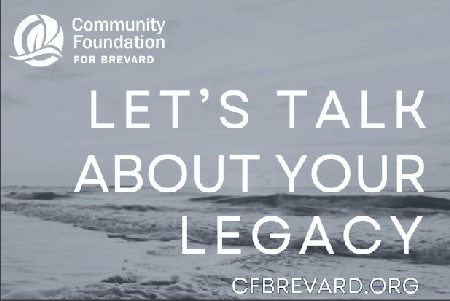Florida bans new AP African American Studies course
April 14, 2023
When sophomore Aubrey Reiter heard that the Florida Department of Education rejected the AP African American Studies course in January, she was disappointed by the news. The course was introduced by the College Board last fall and piloted in 60 schools across the country before its official release in 2024. On Jan.12, Gov. Ron DeSantis sent a letter to the College Board stating that his administration rejected state approval for the course because it is “contrary to Florida law” and “significantly lacks educational value.”
“It’s probably not as big of a focus [as other AP courses],” Reiter said. “But DeSantis is saying that the AP African American class is ‘indoctrination’ and that it is not factually accurate. That’s spreading the wrong message because it’s definitely something that needs to be learned about. Based on how DeSantis has been interfering with the education system, it’s not really a surprise. It’s a disappointment.”
DeSantis said the APAAS course violates Florida’s Stop WOKE Act, which was passed in March 2022. The act restricts discussions in Florida schools that insinuate that members of an ethnic group are inherently racist, a component of what is referred to as “critical race theory.” The law is currently being challenged in federal court.
Reiter said the course is important because it portrays the racial disparities within U.S. history.
“Firstly, it’s history,” Reiter said. “Everyone knows that if you don’t learn about history, you’re going to repeat it, which in this case would be really bad. So I think it’s very important that we learn about it, and I think it’s a good thing that College Board is offering a class.”
The course is the College Board’s 40th Advanced Placement course, and it is the first new AP course since 2014. Advanced Placement courses allow students to take college level classes and earn college credit in high school.
The decision to reject the course was met with backlash from many, including from White House press secretary Karine Jean-Pierre calling it “incomprehensible.”
Civil rights trial lawyer Ben Crump said he would file a lawsuit against DeSantis on the behalf of three high school students if DeSantis does not permit the introduction of the course in Florida.
History teacher Kirk Murphy said he disagrees with Florida’s reasons for rejecting the course.
“So then AP Euro was indoctrination and there’s too much subjectivity,” Murphy said. “You could say that about anything. And they also said they turned [APAAS] down because they didn’t like certain aspects, but AP even said it’s a new course and we always go and we look at new courses after a little bit to see where they can be changed. So their arguments, they’re moot. They’re just bringing up their same talking points that really are just disguising their prejudice.”
Murphy called the decision to reject the course upsetting, but expected.
“Based on all the things that have happened the past few years, this is par for the course,” Murphy said. “And I guess it’s maybe a bad or good way of putting it where we’re trying to whitewash our history. So I’m not surprised by this.”
Murphy said he teaches students to be able to support their opinions with “honest-to-God facts.”
“I’ve read a statement recently that said, ‘If you’re studying your history, and you feel totally good about everything you’re reading, then you’re not studying history’,” Murphy said. “So, every single country — and that’s Russia, that’s China, that’s whoever — France, Britain — have fantastic, awesome things that they’ve done, and they have things that they could be embarrassed about. Then you need to study both of them. There’s a totality that goes into knowing where we come from and helps us to understand where we’re going.”
Assistant Principal for Curriculum and Instruction, Glenn Webb, said he believes students would be interested in taking the APAAS course.
“I think at West Shore, there’s an overwhelming desire for courses like African American Studies,” he said. “The AP level would fit right in with what we’re looking for, which is the most well-rounded, competitive college admissions portfolio that we can help our students develop.”
Webb said he encourages students to stay up to date on current legislation at the state and national level.
“It’s interesting to me that, as we make decisions about education that are going to affect the futures of our children, the children’s voice in that process is somewhat muted,” Webb said. “But I think students should take a greater interest in what’s happening at that level, and with whatever platforms they have, be as loud as they can.”
Illinois Gov. J.B. Pritzer sent a letter to College Board on Jan. 25, stating that the Illinois DOE would reject the course if any modifications were made to comply with “Florida’s racist and homophobic laws.” Pritzer said the state would study the updated course curriculum to ensure that it contains “all necessary history, starting with this nation’s foundation built on slavery” and including the “efforts of Black Americans to continue their fight for equality and equity to this day.”
“College Board is putting themselves into a particularly interesting situation by making any type of modifications based on one state’s desires for the curriculum,” Webb said. “If College Board does that, they may lose some other states as well, and to have different standards in your curriculum for different states would obviously be a mess.”
The College Board said the revisions to the course were finalized by Dec. 22 and were not related to DeSantis’ objections.
Webb said some of the topics that APAAS was rejected for are an “integral part of our history” and provide context for events in the past.
“From a curriculum standpoint, you’re going to find evidence of those things embedded in just about all of your social sciences,” Webb said. “People who are looking for it can find it just about anywhere.”
The College Board released the revised official framework for the APAAS course on Feb. 1, the first day of Black History Month. The course covers more than 400 years of Black history, with topics beginning from early African kingdoms. The curriculum was developed with the consultation of more than 300 professors of African American studies, according to the College Board. In the revised course, units from the pilot about intersectionality, Black queer studies and the Black Lives Matter movement were removed or made optional. The Florida DOE is now considering the revised course to determine whether it complies with Florida law.
Grace Glass is a regional director for the Blexit foundation, a nonprofit focusing on the advancement of Black American culture. Despite these opinions of opposition toward the course rejection, Glass said she agrees with the Florida DOE rejecting the course.
“The idea [of having the course] is wonderful,” Glass said. “It needs to be talked about. The truth needs to be talked about. But rejecting that particular curriculum was a must. It needed to happen because there were other things more than just history that were laced throughout that curriculum — things like Queer studies, the activism. The examples that were laced into this curriculum would actually agitate this generation that it was going to be taught to.”
Glass said the curriculum included a sense of competition among students, rather than education.
“School is meant to be a place where you learn,” Glass said. “You learn, you build friendships, you get the quality education you need to be successful and knowledgeable. The curriculum that was first introduced, it’s used as a weapon of destruction, in a sense, to really keep the students from prioritizing what needs to be prioritized their brains.”
Webb said West Shore teachers are “remarkable” at ensuring that students receive all relevant information within the scope of a course while adhering to state standards.
“It’s no secret that the education of our children is very important to everybody,” Webb said. “Everybody has their own opinion as to what’s the best way to go about doing it. I think we’ve done a remarkable job in creating highly educated, well-rounded children and young adults. But I think a lot of that success lies not on the curriculum, but on the passion of our teachers and on the skill set that’s innate in all of our students. So we find our way, and regardless of what the controversies are out there, we definitely want to make our voices heard. It needs to be a battle of ideals, not a battle of people.”






















































